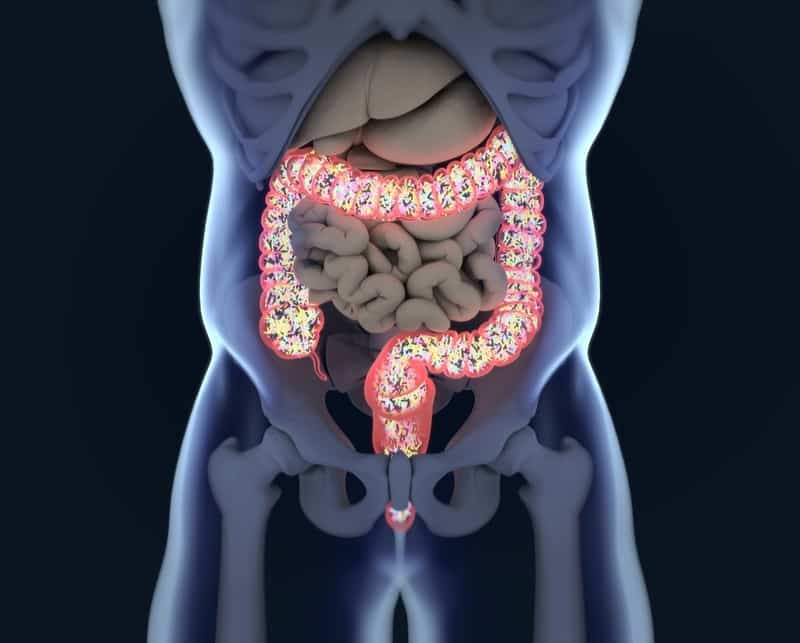The news last week of the FDA approving Ferring Pharmaceuticals’ first fecal microbiome product, Rebyota, caused quite a stir in the field. The news was described as a huge step, a giant leap forward and simply fantastic.
Paul Feurstadt is the director of non-inflammatory bowel disease research at the Medical Research Center of Connecticut. He also ran the trials. In this interview he delves a bit deeper into what it really means for the industry – and what it was like for those trialing the drug.
Why do you think this will change the microbiome field?
In the past, when people were receiving fecal microbiota transplantation, this was not part of a pharmaceutical clinical trial, they were receiving a therapy that had variability. The variability occurred because the screening of the donor and the sample was not nearly as comprehensive as an FDA approved product.
Each donor has their own microbiome. So, the predictability of the result in the recipient was less clear. With an FDA approved product that follows Good Manufacturing Procedures, quality metrics for safety and consistency of the consortium of microorganisms included along with a multitude of FDA overseen trials supporting its efficacy, Rebyota has shown a consistent safety and efficacy profile that is much more definitive than what has been used in the past.
Rebyota takes this treatment from a more rudimentary past to the sophisticated future. By having this FDA approval, a much broader array of clinicians will likely be comfortable performing microbiota restoration (using this product) and availability of the treatment should remarkably increase. Patients benefit tremendously from this combination.
How quickly do you envisage these changes happening?
These changes should happen as soon as the clinical providers are aware that the product is approved and available. Communications, such as yours, will hopefully spread the word of this approval.
What hurdles have always been in the way of this area of science and specifically fecal microbiome?
In the past, the biggest hurdle was safety of what we were doing. When performing microbiota restoration therapy, we were using the safest available treatment for the time. The hurdle of the clinical provider who does not have an interest in the microbiome being comfortable using this treatment previously should now be uprooted and those providers should now be comfortable using an FDA approved therapy such as Rebyota.
Do you think more people will give samples now the world is waking up to the benefits?
I agree this will open much more dialogue in the general population about the gastrointestinal microbiome and how it might be used to improve health and treat disease. By initiating the dialogue, the general population will likely be more open to this type of therapeutic and more importantly, will be open to both being a donor, if they are healthy, a potential recipient in a clinical trial if that trial is looking to treat a disease which is thought to benefit from microbiota restoration.
It has already been suggested that allergies may cause an issue – but we won’t know what to do until they happen, what are your thoughts?
Having had extensive experience with microbiota restoration therapy, yes, theoretically, allergies are a potential confounding consideration. This has not borne out in the foundational clinical trials (non-pharmaceutical) for fecal microbiota transplantation or within the live biotherapeutic product trials (pharmaceutical microbiota restoration therapy). As part of the safety net, donors are not allowed to have a history of allergy either. With that consideration in mind, it is still possible that when the broader population receives this product there could be allergies in a small minority of those receiving a treatment such as this. All clinicians should be mindful of this potential.
Feurstadt also ran the trials for Rebyota, so had first-hand experience of what the environment was like and how the patients were feeling.
Could you tell us a bit about your experience of the trials?
The road map to approval of a live biotherapeutic product has been a winding road starting with the rudimentary methodologies, but ending with well performed clinical trials considering well designed products. Rebyota, has been extensively studied in these clinical trials and has shown tremendously consistent safety and efficacy in phase 2, 3 and open label study formats.
How did the participants of the trial feel? Did you pick up on any anxiety/fear of the unknown? If so how were people reassured.
Patients with recurrent C. difficile infection suffer from anxiety, depression and elements of post-traumatic stress disorder. As such, anything that can potentially decrease the anxiety around the infection returning, can help them. Participants in the clinical trial felt relieved that they had access to a therapy that would significantly reduce their risk of the infection recurring in the future. Access to these essential treatments was largely limited since there was no fully FDA approved product.
For what reason were the majority there for – obviously to find a cure – but was it a case of last chance for some who may have quite literally tried everything else?
The patients that participated in the pivotal trials had tried everything else and could not get rid of this infection. This type of scenario happens all too frequently with C. difficile. Despite standard of care treatment, up to 35% of patients with initial infection will recur.
Of those 40-50% recur after that and the up to 60% thereafter as patients get caught in a vicious cycle of recurrence that has a massive burden on patients physically and emotionally.





